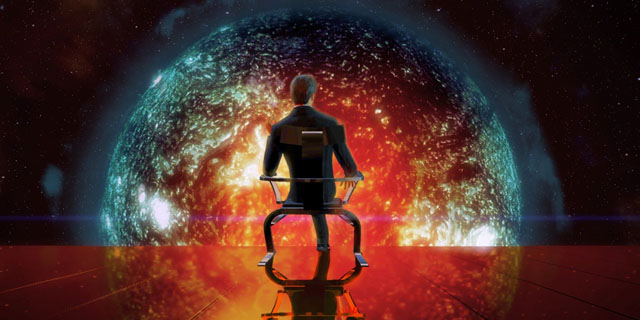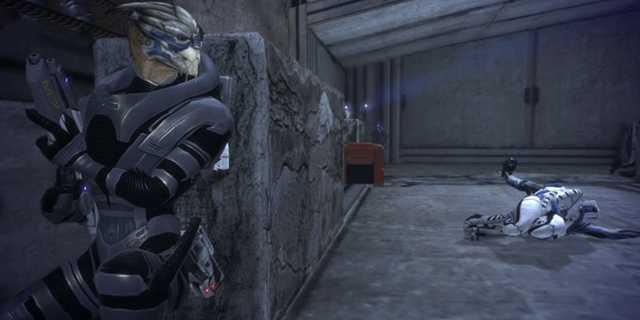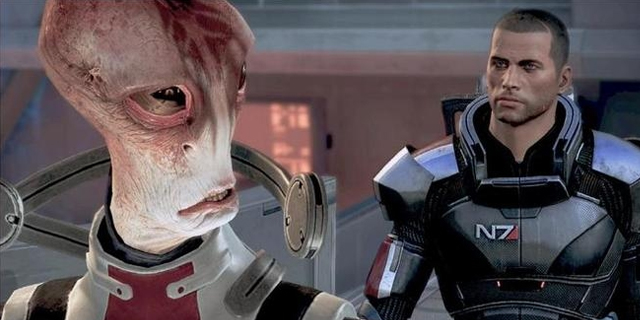
I’m a creature of habit. I tap the dashboard three times when I drive through a yellow light. I’ll eat the exact same meal for weeks in a row. I rarely alter my jogging routes. I’ll latch onto a podcast and listen to every single episode, or even continue watching a show long after my interest has waned.
These stubborn tactics and silly quirks carry over to video games. I don’t know if it’s perseverance that gets me through long games that I hate, but I do know that I’m almost incapable of adjusting my behavior, even when it makes complete sense to do so. It may prevent me from playing an outstanding title, or cause me to play a game I don’t even want to play. All I know is that if there is a game series, I’m going to start with the first one.
I demand that I play things in order. Not only does it not make sense for me to do otherwise, I’m repulsed by the idea of skipping a game that’s part of canon. I cringe at the notion of picking up the fourth game in the series without even knowing about the first three. How will I know the overall lore of the world? Won’t I miss the subtle nods to the originals? The homages? The appearances? The comparisons? No, no, no. This won’t do at all. I’m going back and playing the original three before I start part four. What’s that? The first game was made in 1991 and has aged horribly? Too bad, here we go!
One of my fellow actors told me that she wanted to start the Mass Effect series. Fantastic! What a great idea. One of the best series ever, oozing ’80s sci-fi glory from every pore and containing some of the most memorable characters ever.
“I don’t have the first one, so I’m starting with Mass Effect 2.”
….”What?”
“Well, I don’t have the first one.”

After I came to, I realized she was serious. Start Mass Effect with the second game? That’s akin to starting Star Wars on Empire Strikes Back. It’s a great movie, sure, but you won’t get a fraction of the same enjoyment out of it by not watching the original first. Do you start a book in the middle? Do you start a TV series on season five?
It baffles me. Particularly with a series such as Mass Effect, which goes a step beyond rewarding players for playing the games in proper sequence by giving them a familiar setting. The first game has a few key sequences in which the player must make an impactful choice. One part has you deciding between saving two team members; both cannot survive. One will live, the other will die. These kinds of decisions not only lend weight to the situation at hand, but it gives the player a more personal involvement. If you let Kaidan die in Mass Effect, he’ll still be dead by the end of Mass Effect 3. Even better, conversations will pop up in Mass Effect 3 about your decision. There’s something very satisfying about making a choice in a game, only to be reminded of it six years later.
It’s a trend I hope to see more often. I know it must be maddening for BioWare to figure out how to branch out all the decisions across three games, but I greatly appreciate the hard work. One character’s actions stood above all else and is an air-tight case for why games should be played in sequence. Or at least, the Mass Effect series. C’mon Michelle, starting with ME2? Seriously?

Mordin Solus is one of the most entertaining, compelling characters I’ve ever had the privilege to call a party member. He belongs to a race called the Salarians, a mix between amphibians and Bill Gates. They think and talk very quickly and specialize in genetics, science and covert ops. The Salarians have a shaky past; they created a genophage that would greatly reduce another race’s fertility rate, the war-like Krogan. The ethics of this decision are addressed frequently, and Mordin cannot move on from the role he played in the creation of the genophage. While it’s true he believes the ends justify the means (the genophage stopped the Krogans from over populating and threatening the galaxy), he tries to see the big picture. A conflicted, hilarious and deep character, to say the least. He also enjoys singing Gilbert and Sullivan.
At the end of Mass Effect 2, you and your team engage in a “suicide mission” to a massive enemy base. The goal is to rescue your captured ship crew and destroy (or sterilize) the base. Not all party members may survive, depending on their loyalty to you and which specific tasks you assign during the battle. Since I knew that my choices and party member deaths would carry over to Mass Effect 3, there was absolutely no way I was going to let any of my crew die.
My dedication to playing through the games in order, keeping everybody alive that I could, was rewarded near the end of Mass Effect 3. Mordin comes to realize that the genophage was a mistake and that curing it was his responsibility. He admits to focusing too much on the big picture, and that he can’t hide behind statistics. I chose to let Mordin do so. Of course, this takes place during a huge battle littered with explosions. Mordin goes up to the control room and releases the cure to the genophage, knowing that he will die in the process. As he sings the first few lines of his favorite Gilbert and Sullivan song, an explosion rocks the room and Mordin is no more.

What a scene. What a character. What an arc! How could you possibly get a fraction of the emotional impact if you started the series on the third game? Or didn’t ensure Mordin’s survival in the second game? I’ve heard that if you don’t save Mordin, an equitable Salarian character takes his place, but that’s irrelevant to me. That’s not my Mordin. My Mordin made it through the suicide mission. My Mordin was a slightly tortured, hilarious, fresh character. It reaffirmed my stance that playing through a series in order is necessary to get the most out of them.
I recently played through Assassin’s Creed II and thoroughly enjoyed it. The historical setting was fascinating, the cities were a treat to explore, the combat was solid and the assassinations never stopped being satisfying. I enjoyed the wacky Matrix-esque sci-fi aspect, too. It definitely made me want to continue the series.
Sigh.
I never played the first Assassin’s Creed. I already regret it; I had no idea who the Abstergo were. The trophy for beating the game is called “An Old Friend Returns.” Gah! An old friend? I don’t know who this guy is! He’s a new person to me! I’ve missed out by not playing the first one, even though I was explicitly told to skip the first one, since it’s really rough around the edges and you don’t need to play it to enjoy the second one. They were right, but I still wish I’d stuck to my guns and played the first one first.

This is one of the reasons I enjoy watching various YouTube personalities play through games. I often don’t have time to play every single game that I want, and if I’m forced to start a series midway through, then I can search for plot details or watch a “let’s play” of the earlier games that won’t take very long. I urge you to do whatever you can to get caught up in a series if you can’t start from game one; you’ll get more out of it. The connections that follow over can vastly increase the amount of enjoyment you get when playing a game, and that rings true for all mediums. It just takes a bit of research and patience, and you’ll be well rewarded.



















